NASHVILLE, Tennessee – Metro Council member Robert Swope unveiled a new plan with a play on words, “Intelligent Transit for the It City Nashville,” Tuesday at an event at the Wildhorse Saloon on 2nd Avenue North in downtown Nashville.
Joining Swope on-stage were Tennessee State Senators Bill Ketron (R-Murfreesboro) and Mark Green (R-Clarksville). Senator Ketron spoke of his personal experiences with increasing traffic issues as he travels to the state legislature, and Senator Green talked about the benefits of autonomous vehicles, including increased roadway capacity due to the ability to have vehicles in closer proximity to each other.
Swope put on a high-tech presentation in conjunction with Paul Doherty, President and CEO of The Digit Group, Inc., (TDG) who connected to the meeting via telecomm from Japan, where he had been meeting earlier with the Prime Minister.

TDG specializes in holistic smart city solutions, “using technology solutions as the basis” for planning, designing, building and manufacturing smart city solutions that provide safe and comfortable transportation, among other elements with solutions implemented in China, Southeast Asia, India, the Middle East, Europe and through the U.S., according to the TDG website.
Swope told The Tennessee Star that he has served on the advisory council to TDG and traveled to China with TDG as part of the 2017 U.S. CEO Delegation.
Swope paid for any expenses associated with Tuesday’s presentation and the event out of his own pocket, because of his fervent belief in a better transportation solution for Nashville. A PAC (Political Action Committee) has been formed which may eventually provide reimbursement for his expenses, according to Swope.
Among the 50 or so attendees at the event were three current Metro Council members, John Cooper, Larry Hagar and Davette Blalock.
Carol Swain was the one Metro Nashville mayoral candidate in attendance.
“I believe that Intelligent Transit for Nashville is the way that we should go as a city and even as a region, because it’s not just going to affect Nashville. It’s going to ease the traffic woes of the entire region,” Swain told The Star.
“The presentation that Councilman Swope put together was impressive and easy to follow,” she added.
“I think that when Nashvillians and others in the region see the plan, they will enthusiastically get behind it. I especially liked the fact that it involved Public Private Partnerships – that it doesn’t make us dependent on the federal government or raising taxes. This is an opportunity for all of us to get together and do something that will improve the quality of life for all Tennesseans,” Swain noted.
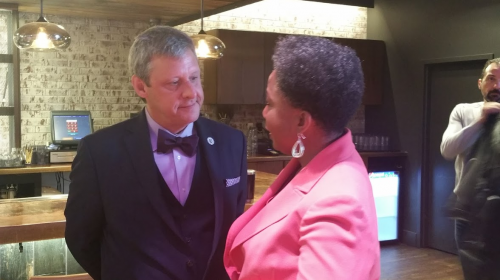
While the Nashville Area Chamber of Commerce office on Commerce Street is well within walking distance to the venue at less than a tenth of a mile, its President and chief promoter of the $9 billion transit plan, Ralph Schultz, did not attend the event.
Swope painted a vision of all ten counties working together, in stark contrast to the Let’s Move Nashville plan that addresses less than one percent of the total regional community, and carries with it “a hope beyond hope that the nine others join together.”
Electric vehicles operating within an autonomous environment combined with corporate fleet service for the first mile/last mile would be managed by the MTA (Metropolitan Transit Authority) and RTA (Regional Transit Authority), in Swope’s plan.
Ninety percent of all accidents and congestion are caused by human error, according to Swope, and removing that from the equation could save as many as 1.5 million lives globally. Other benefits include a 70 percent savings in transportation costs and an end to acres of parking lots.
Swope’s Intelligent Transit Plan would be funded through a Public Private Partnership, not the process of the Let’s Move Nashville plan which requires the raising of taxes and then “begging” for federal funding. Swope proposes private equity funding of 25 percent, municipal funding of 25 percent and the 50 percent balance coming from state and federal funds.
Within a one- to five-year timeline, the entire 10-county region would have an Intelligent Transit system at a total cost of $1.65 billion, a mere fraction of the $9 billion Let’s Move Nashville plan.
Private equity and regional funding at $400 million each, plus $150 million in state money and $700 million in federal funding would require no tax increases.
With no fixed infrastructure, routes are flexible and can be changed at the push of a button. With such a system that combines mass and personal transit, Nashville can be a model for and drive the entire country forward on true transit equality and independence, Swope enthusiastically conveyed to attendees.
The specifics of the plan, as presented by TDG’s Doherty, includes dedicated AV/EV (Autonomous Vehicle/Electric Vehicle) high speed lanes, implemented in two phases throughout the ten-county region within five years. Double stacked highways without exits on I-64, I-40 and I-24, will accommodate the numerous vehicles that travel straight through Nashville without making stops.
TDG’s NextGEN Autonomous Vehicles are “100% environmentally clean,” and are sized according to the needs and the environment. The Intelligent Transit system will include 16 AV/EV Transit Centers with two or three located in each direction of the Nashville-area’s three major interstates.
Each element of the Intelligent Transit plan was accompanied by a high-quality, futuristic depiction from the NextGEN Autonomous Vehicles in different lengths to the double-stacked highways at both day and night.
When speaking of the Transit Centers, Doherty alluded to those of the past that served as a cultural and art centers, as the rendering of a modern transit center was displayed.
The Intelligent Transit system concept and presentation distinguished itself with its “forward thinking solution,” as opposed to the Let’s Move Nashville plan which “never considered anything but an 1850’s technology,” Swope told The Star.
The event concluded with Swope’s encouragement to be sure to vote in the May 1 referendum, with early voting that starts Wednesday, April 11.

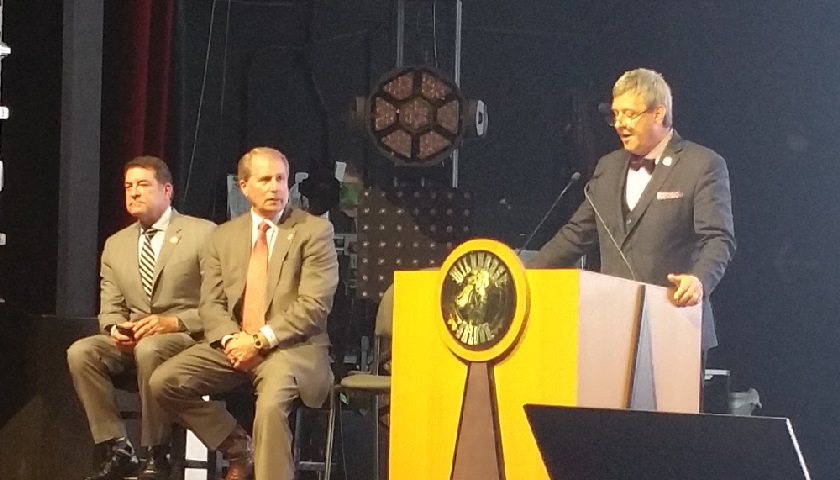


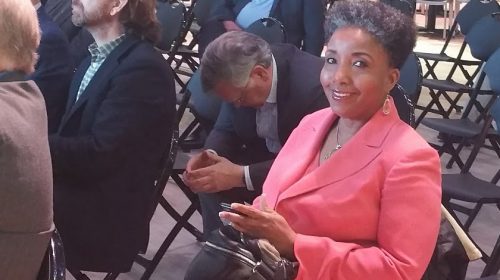


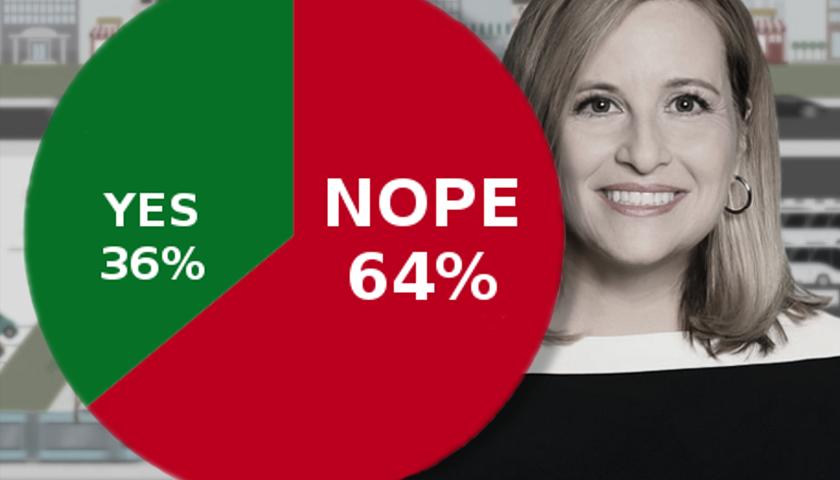
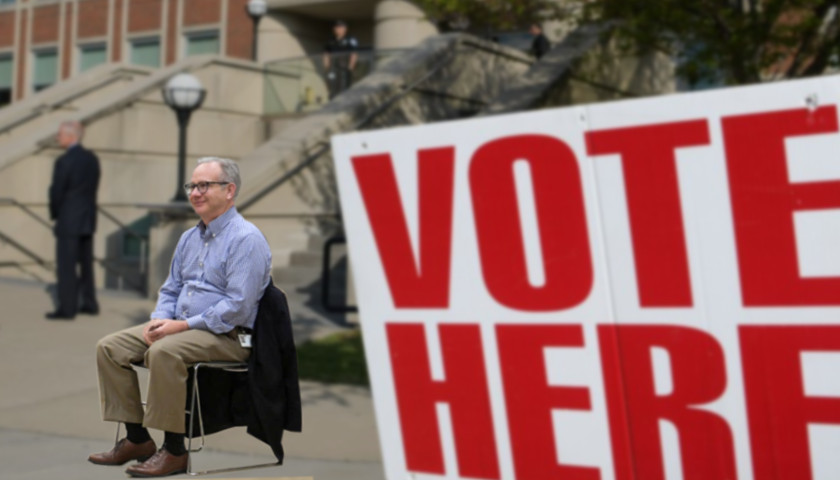
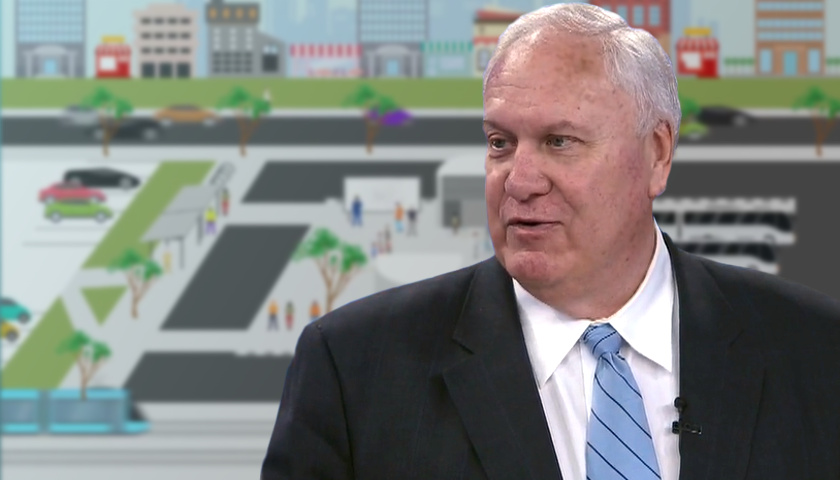
If you put this speech in an anaerobic digester it could power a small dairy that wouldn’t produce half as much BS.
Thanks, Mr. Easy Answers. It’s going to save the environment, autonomous flying cars, potentially billiins of lives saved and so much money to boot! It’ll be a P3 like Arizona’s Connect 202 project. Except that’s actually for something people will use and not Lyle Langley’s monorail.
If the really super amazingly named ITPFTICN is an excuse to kill the current idiocy, yay, it sounds great. I would have the question the legitimacy of anyone signing on to this pie in the sky after this sales pitch.
The transit system will only go three to four miles away from downtown Nashville and serve only but a few, and everyone will have to pay for it. This will destroy our tourist trade and music business and we will have the highest taxes in America.
Like “rag top” I too am skeptical, BUT, do believe that this new proposal is an order of magnitude better that the $8.9 Billion Barry Briley Boondoggle. Plus the fact that it encompasses the “ring” counties for that price makes it even more attractive.
That said, even if we defeat the May 1st transit plan and we elect an Conservative Mayor, like Carol Swain, living in a democracy is not a spectator sport! We need to stay engaged and keep paying attention to the details. “The shadow of the gardener is the best fertilizer”!
“TDG’s NextGEN Autonomous Vehicles are’100% environmentally clean’”
Really? They intake and expel no fuel? That is a ridiculous statement. Will these electric vehicles be charged by lightening strikes? Double stacked highways would be of benefit in the long run but how many tens of years would the existing roadways be impacted? The only saving grace of this proposal is that less money would be wasted.
I believe that the mayor’s mass transit proposal is idiotic but I am not convinced that this alternative is a solution. How many of the rest of you have sat through a sales presentation and been promised the moon and stars but when you committed to purchase the product failed to deliver 25% of the promises? I sure have. It appears to be even worse when it comes to government promises.